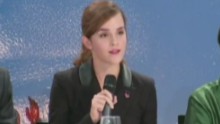How Does the Public View Conflict in Custody Decisions?
One of the main reasons that judges do not automatically award equal parenting in custody decisions is because of their concern about the conflict between the parents and the harm it will do to the children. In previous work, (see blog post on this work) researchers at Arizona State University found that the general public generally favors custody decisions that award both parents equal time in custody decisions, but many custody battles involve conflict between parents. When conflict persists among divorcing parents, most judges and custody evaluators have recommended against shared parenting in order to keep children out of the conflict.
In this study, Braver and his colleagues wanted to find out how the public thinks custody decisions should be handled in which there is conflict. (SeePsychology, Public Policy and Law, 2011).
To examine these questions, the researchers developed hypothetical cases that described a low conflict scenario and two types of high conflict scenarios. In the low conflict case, the parents were described as reasonably good parents who are involved in the children's lives. There were two types of high conflict cases, one in which both parents were described as extremely angry at each other and fight in front of the children. In the second case only one parent was angry. Half the time this was presented as the father and half the time as the mother.
These cases were presented to citizens who had been summoned to serve on a jury panel in an Arizona community. About 250 people participated in this study. The participants were given the hypothetical cases, and then asked to imagine themselves as the judge deciding these cases based on the merits of the cases and what was best for the child. In each case they were asked how much time the child should spend with each parent.
In both the case of low conflict and high mutual conflict, the participants in this study favored awarding both parents equal time (about 65%). This finding indicates that almost two-thirds of the public still favors equal parenting time even in cases in which there is continued conflict. There was not complete consensus on this arrangement however. The remaining one-third of the participants were more likely to favor having the children live with the mother and reduce the amount of time that the dad got time with the children. This group of participants favored awarding more parenting time to the mother in conflicts in which both parents were described as angry and fighting.
When the cases were presented in which one parent was described as the cause of the conflict, then participants recommended that the parent causing the conflict should get less parenting time. The participants did not differ in their judgments about mothers and fathers. Regardless of whether it was the mother or the father was the source of the conflict, participants thought they should get less time with the child if they were angry, fighting and causing conflict.
These views of custody in high conflict divorces run counter to the views of most professionals. When families are embroiled in conflict during the divorce, they recommend that children be given primary custody with one parent. This is based on the evidence that conflict between parents is one of the most damaging factors in children's well-being during a family breakup. Professionals assume that the parents will not be able to resolve their conflicts resulting in the children being continually exposed to angry, bitter altercations. The findings in this study indicate that the general public does not hold this view. The researchers conclude, "Family lawmakers need to confront that equal custody enjoys genuinely great popularity among the citizenry."
http://www.huffingtonpost.com/robert-hughes/how-does-the-public-view-_b_877174.html

































